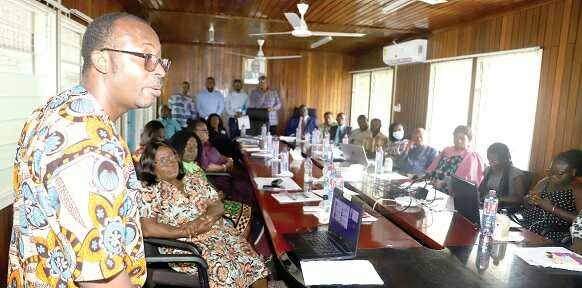Aquaculture sector stakeholders have emphasised the necessity for a residue monitoring plan that will assist the nation get the most out of aquaculture production.
They said that the implementation of this plan will also lower the dangers of pests and diseases that harm fish farms and the environment.
Joseph Seyram Klu, an agribusiness consultant, presented a position paper on behalf of the group to the Fisheries Commission, stating that the initiative would improve farm biosecurity management to reduce unnecessary costs and production losses as well as give fish processors access to the European Union (EU) market.
He stated that the aquaculture industry in Ghana was now a privately owned business and that the country lacked a stand-alone aquaculture strategy.
He stated, "We anticipate the government to implement farmer and consumer-oriented policies and programmes to advance aquaculture, protect sustainable water resources management, and ensure food security."
Therefore, Mr. Klu suggested that the Fisheries Commission work with the Food and Agriculture Organization (FAO) and the Veterinary Services Directorate to put the verified aquaculture biosecurity recommendations into practise.
Commission for Fisheries
A national aquaculture bio-certification scheme for fish farmers should be developed and established, he added, in collaboration with stakeholders, particularly farmers.
To enhance testing of residues in farmed fish, he recommended that the government, through the Ministry of Fisheries and Aquaculture Development, purchase a Liquid Chromatography-Mass Spectrometry machine and its accessories for the VSD's National Food Safety Laboratory of the Ghana Standard Authority (GSA).
Francis deHeer, the national coordinator of the Ghana Aquaculture Association, stated that many farmers in the aquaculture industry used commercial feeds made from synthetic and natural ingredients due to the high stocking density in aquaculture systems and the need to optimise feed conversion ratio.
The potential sources of pesticides in fish feeds, according to him, include some of these formulated feed ingredients and veterinary medicine residue, which must be monitored and managed.
In order to encourage aquaculture farmers to expand their farms and produce and process for export, Mr. deHeer pleaded with the government to support stakeholders in the fish feed business.
Catfish
He claimed that the nation's present capture of tilapia and catfish was insufficient for both domestic and local export, adding that the aquaculture farmers helped to fill the gap in some cases.


